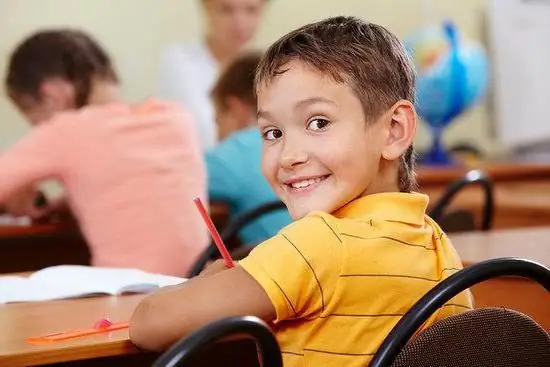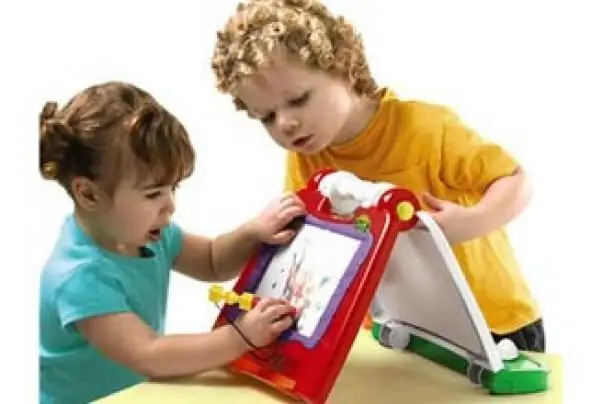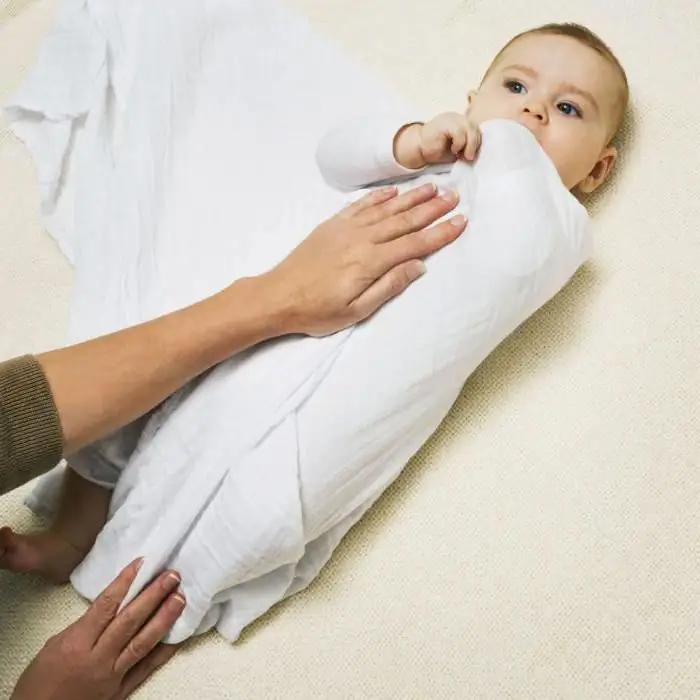2026 Author: Priscilla Miln | miln@babymagazinclub.com. Last modified: 2025-01-22 17:55:18
Disputes between those who believe that it is better to send a child to school at 6 years old, and those who are of the opinion that it is better to wait until 7, are eternal. That is why it is important for parents to intuitively feel whether it is time for their beloved child to discover the amazing school world with all its joys and difficulties. Maybe it's better to wait a little longer? There are many factors that affect children's readiness for school.

Psychological, emotional and social readiness for school
In the first place, of course, are the factors of the so-called "social development". What does it mean? The kid who has a certain outlook, knowledge about the world around him, is really ready for school, knows how to memorize, define and compare. It is important that the child already speaks well and can formulate his thoughts. The ability to control one's behavior is especially important.
The emotional readiness of children for school is largely determined by the ability to persevere insome things that may not be very interesting for the child himself. In a word, it refers to the ability to understand the meaning of the word “must.”
The social and communicative readiness of children for school depends both on the ability to communicate with their peers, establish contact and build relationships, and on their ability to communicate with adults (you can not do without politeness, understanding the authority of elders).
And, finally, one of the most important factors that determine the readiness of children for school is … the desire of the child to go there.

J Chapey Mini Test
To determine if your child is ready for school, you can use a mini-test developed by American child psychologist J. Chapey. Here are the main questions from it.
Child's Basic Experience
- the baby must have some interests;
- you should read at least a few books to him;
- at least once a child should visit a museum, zoo or library;
- you should regularly visit public places with your child: post office, shops, banks, etc.
Physical development
- the child should not have any hearing problems;
- it is important that all possible vision problems are identified before school (if necessary, glasses are prescribed);
- the kid should be able to go down and up the stairs, play with the ball;
- it is desirable that the baby can sit quietly for a while in one place.
Speech Development
- baby confidentnames objects around him;
- he is able to define the objects of reality and explain their purpose;
- very good if the child can determine the position of things in space (above the bed, under the tree, etc.);
- the child should have good diction;
- he should be able to build at least a primitive story.
Emotional development
- the child should have a positive attitude towards the idea of going to school (as, indeed, to the whole world);
- Easily changes the nature of his activity;
- Children's psychological readiness for school also depends on whether the child plays calmly (and perceives defeat) in games where there is an element of competition;
- baby confident in his abilities.

Cognitive development
- child finds differences and similarities between objects;
- able to distinguish letters of the alphabet;
- easy to remember new numbers and words, shown pictures;
- can build a storyline from pictures;
- it's good when a kid can retell the story in his own words, keeping the plot line.
Communication
- child can join already started game;
- knows how to listen carefully, without interrupting the interlocutor;
- Able to wait in line if necessary.
If you have doubts about more than 20% of the points - most likely, at the moment there is no complete readiness of children for schooling, and it is better to wait withthis moment. Or start working hard to catch up.
Recommended:
What if the guy doesn't want a baby? Is it worth asking him? Until what age can you give birth?

A woman is by nature more emotional, especially in matters of motherhood. The strong half, on the contrary, is characterized by rational thinking and, as a rule, makes decisions in a balanced and deliberate manner. Therefore, if a loved one refuses a proposal to have offspring, you should not throw a tantrum, you need to try to find out the reason why the guy does not want children
Raising a child (3-4 years old): psychology, tips. Features of the upbringing and development of children 3-4 years old. The main tasks of raising children 3-4 years old

Raising a child is an important and main task of parents, you need to be able to notice changes in the character and behavior of the baby in time and respond to them correctly. Love your children, take the time to answer all their "whys" and "what for", show care, and then they will listen to you. After all, the whole adult life depends on the upbringing of a child at this age
Identification and development of gifted children. Problems of gifted children. School for gifted children. Gifted children are

Who exactly should be considered gifted and what criteria should be followed, considering this or that child the most capable? How not to miss the talent? How to reveal the hidden potential of a child who is ahead of his peers in terms of his level of development, and how to organize work with such children?
Where to give a child at 4 years old? Sports for children 4 years old. Drawing for children 4 years old

It's no secret that all adequate parents want the best for their child. And, of course, so that their precious children become the smartest and most talented. But not every adult understands that they have only one right - to love the baby. Very often this right is replaced by another - to decide, to order, to force, to manage. What is the result? But only that the child grows up depressed, insecure, indecisive, not having his own opinion
Until what age are children swaddled. Until what age to swaddle a baby

Many mothers are sure that it is necessary to swaddle the child. The future of the kids depends on it. Is it so? What do doctors say about this? Until what age are babies swaddled? Read in the article

